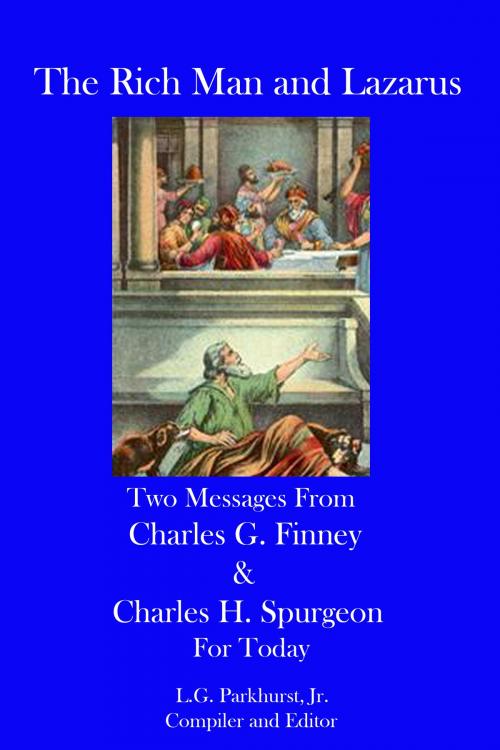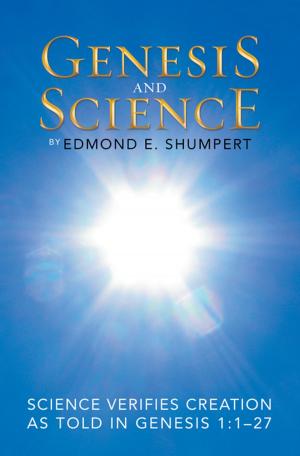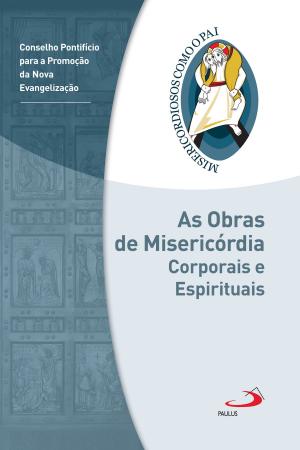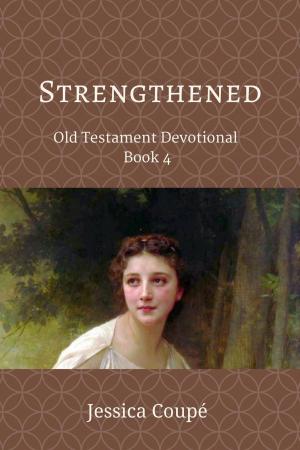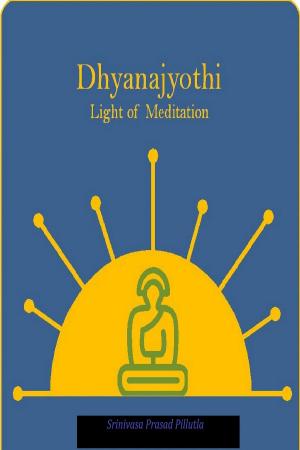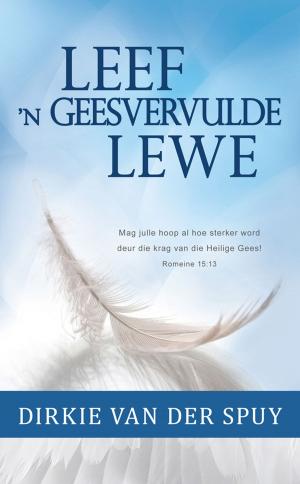The Rich Man and Lazarus: Two Messages from Charles G. Finney and Charles H. Spurgeon for Today
Nonfiction, Religion & Spirituality, Bible & Bible Studies, New Testament, Study, Health & Well Being, Self Help, Meditations| Author: | L.G. Parkhurst | ISBN: | 9781311255273 |
| Publisher: | Agion Press | Publication: | November 19, 2014 |
| Imprint: | Smashwords Edition | Language: | English |
| Author: | L.G. Parkhurst |
| ISBN: | 9781311255273 |
| Publisher: | Agion Press |
| Publication: | November 19, 2014 |
| Imprint: | Smashwords Edition |
| Language: | English |
In The Rich Man and Lazarus, Charles G. Finney and Charles H. Spurgeon explain Jesus' parable on the Rich Man and Lazarus. Both the student of the Bible and the student of great preaching will gain much from these two masters of the pulpit and Bible interpretation. The two sermons by Finney and Spurgeon included in The Rich Man and Lazarus have been only lightly edited by L.G. Parkhurst in order to put them in the same format for easy reading by today's reader, Bible student, and Bible teacher. The messages of both remain unchanged for your comparison and study of the technique and method of these two acclaimed and effective preachers of God's Word. The second book in the Finney and Spurgeon series is The Sower and the Seed.
Charles Grandison Finney [1792-1875] has been considered America’s Greatest Revivalist. He also served as theological professor and president of Oberlin College, Oberlin, Ohio, which he helped found in 1833. In 1980, L.G. Parkhurst began publishing the works of Charles Finney, beginning with Principles of Prayer through Bethany House Publishers. More recently he has published Finney’s works through Agion Press, beginning with Principles of Righteousness.
Charles Haddon Spurgeon [1834-1892] has been considered the Prince of Preachers. He founded Spurgeon’s College in 1856 in London, England, which was named after him following his death. Through Bethany House Publishers in 1988, L.G. Parkhurst published The Believer’s Secret on Intercession, a devotional from the writings of Andrew Murray and C.H. Spurgeon.
The Rich Man and Lazarus Parable is from Luke 16:19-31.
"There was a certain rich man, which was clothed in purple and fine linen, and fared sumptuously every day: 20) And there was a certain beggar named Lazarus, which was laid at his gate, full of sores, 21) And desiring to be fed with the crumbs which fell from the rich man’s table: moreover the dogs came and licked his sores. 22) And it came to pass, that the beggar died, and was carried by the angels into Abraham’s bosom: the rich man also died, and was buried; 23) And in Hell he lift up his eyes, being in torments, and seeth Abraham afar off, and Lazarus in his bosom. 24) And he cried and said, Father Abraham, have mercy on me, and send Lazarus, that he may dip the tip of his finger in water, and cool my tongue; for I am tormented in this flame. 25) But Abraham said, Son, remember that thou in thy lifetime receivedst thy good things, and likewise Lazarus evil things: but now he is comforted, and thou art tormented. 26) And beside all this, between us and you there is a great gulf fixed: so that they which would pass from hence to you cannot; neither can they pass to us, that would come from thence. 27) Then he said, I pray thee therefore, father, that thou wouldest send him to my father’s house: 28) For I have five brethren; that he may testify unto them, lest they also come into this place of torment. 29) Abraham saith unto him, They have Moses and the prophets; let them hear them. 30) And he said, Nay, father Abraham: but if one went unto them from the dead, they will repent. 31) And he said unto him, If they hear not Moses and the prophets, neither will they be persuaded, though one rose from the dead."
In The Rich Man and Lazarus, Charles G. Finney and Charles H. Spurgeon explain Jesus' parable on the Rich Man and Lazarus. Both the student of the Bible and the student of great preaching will gain much from these two masters of the pulpit and Bible interpretation. The two sermons by Finney and Spurgeon included in The Rich Man and Lazarus have been only lightly edited by L.G. Parkhurst in order to put them in the same format for easy reading by today's reader, Bible student, and Bible teacher. The messages of both remain unchanged for your comparison and study of the technique and method of these two acclaimed and effective preachers of God's Word. The second book in the Finney and Spurgeon series is The Sower and the Seed.
Charles Grandison Finney [1792-1875] has been considered America’s Greatest Revivalist. He also served as theological professor and president of Oberlin College, Oberlin, Ohio, which he helped found in 1833. In 1980, L.G. Parkhurst began publishing the works of Charles Finney, beginning with Principles of Prayer through Bethany House Publishers. More recently he has published Finney’s works through Agion Press, beginning with Principles of Righteousness.
Charles Haddon Spurgeon [1834-1892] has been considered the Prince of Preachers. He founded Spurgeon’s College in 1856 in London, England, which was named after him following his death. Through Bethany House Publishers in 1988, L.G. Parkhurst published The Believer’s Secret on Intercession, a devotional from the writings of Andrew Murray and C.H. Spurgeon.
The Rich Man and Lazarus Parable is from Luke 16:19-31.
"There was a certain rich man, which was clothed in purple and fine linen, and fared sumptuously every day: 20) And there was a certain beggar named Lazarus, which was laid at his gate, full of sores, 21) And desiring to be fed with the crumbs which fell from the rich man’s table: moreover the dogs came and licked his sores. 22) And it came to pass, that the beggar died, and was carried by the angels into Abraham’s bosom: the rich man also died, and was buried; 23) And in Hell he lift up his eyes, being in torments, and seeth Abraham afar off, and Lazarus in his bosom. 24) And he cried and said, Father Abraham, have mercy on me, and send Lazarus, that he may dip the tip of his finger in water, and cool my tongue; for I am tormented in this flame. 25) But Abraham said, Son, remember that thou in thy lifetime receivedst thy good things, and likewise Lazarus evil things: but now he is comforted, and thou art tormented. 26) And beside all this, between us and you there is a great gulf fixed: so that they which would pass from hence to you cannot; neither can they pass to us, that would come from thence. 27) Then he said, I pray thee therefore, father, that thou wouldest send him to my father’s house: 28) For I have five brethren; that he may testify unto them, lest they also come into this place of torment. 29) Abraham saith unto him, They have Moses and the prophets; let them hear them. 30) And he said, Nay, father Abraham: but if one went unto them from the dead, they will repent. 31) And he said unto him, If they hear not Moses and the prophets, neither will they be persuaded, though one rose from the dead."
